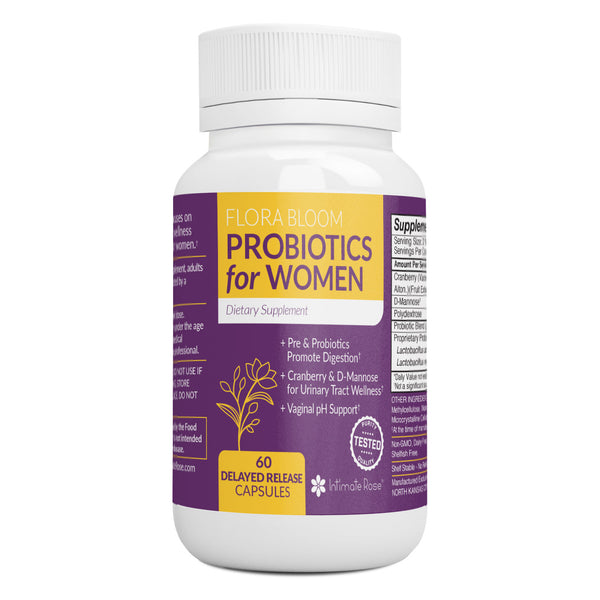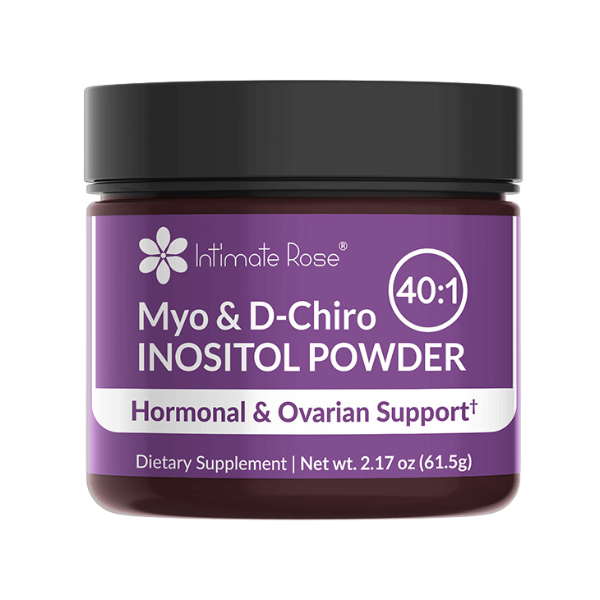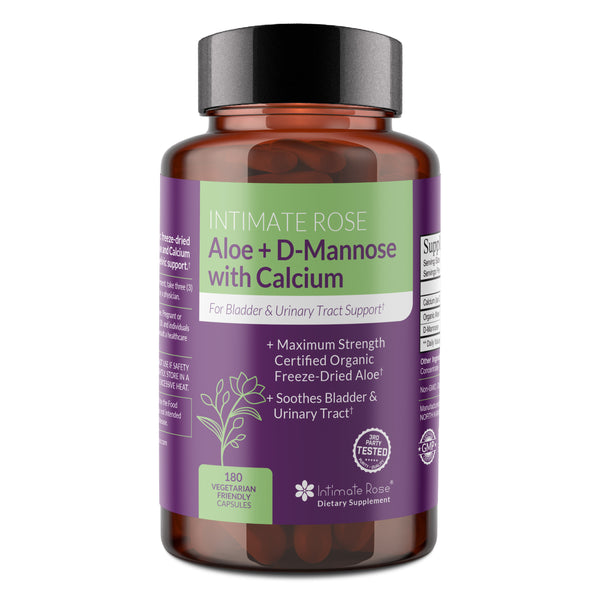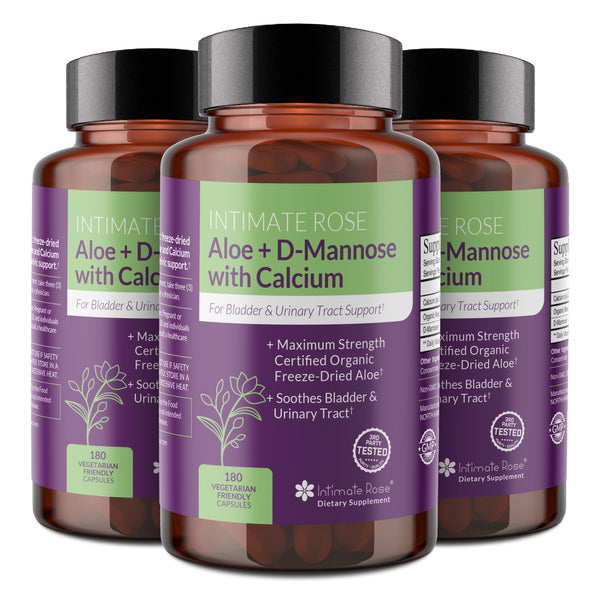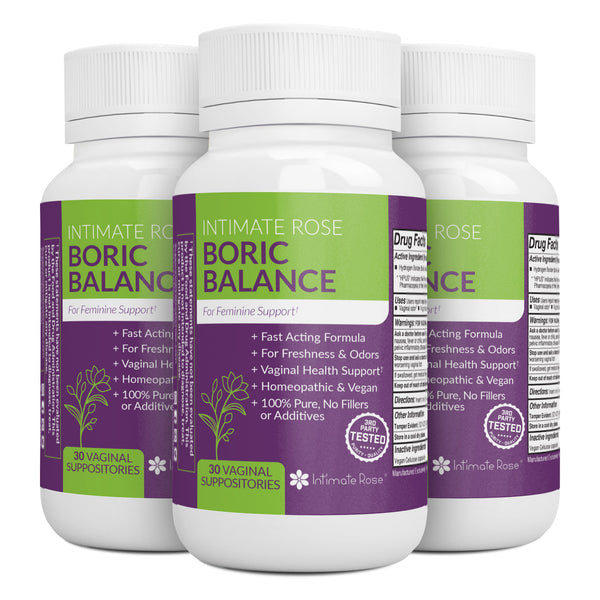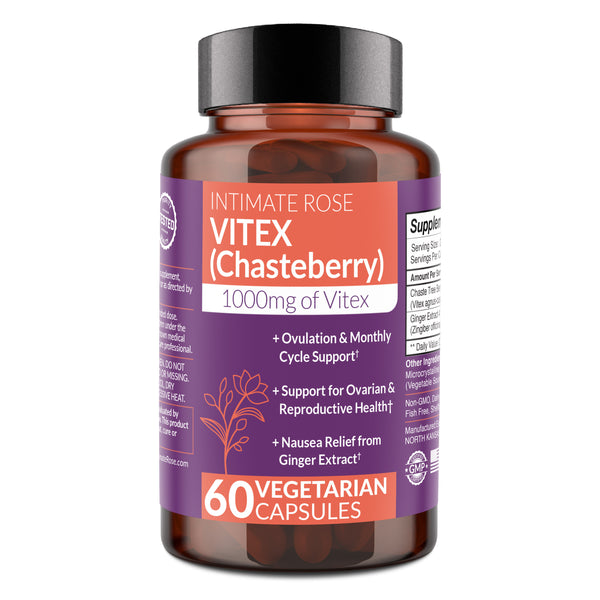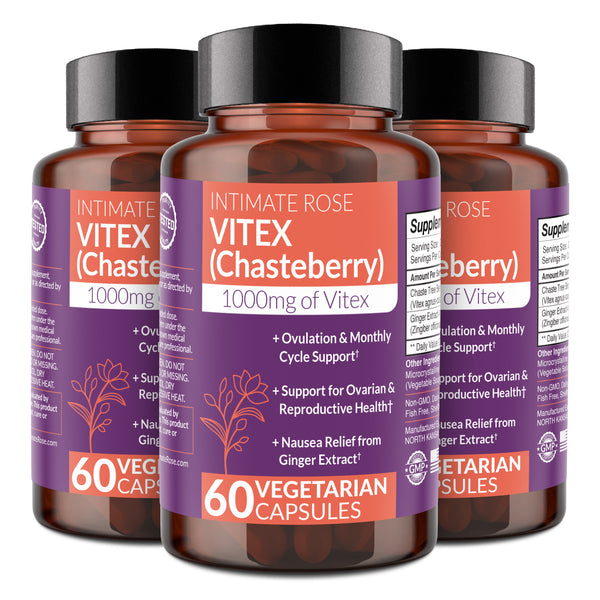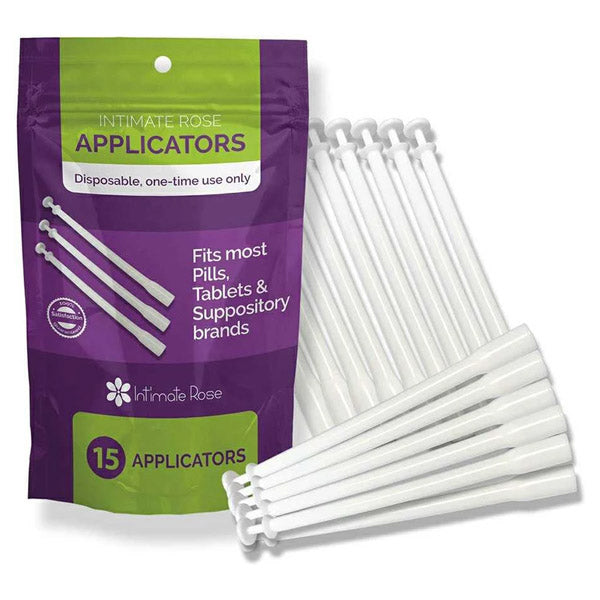As one of the most common symptoms of Polycystic Ovary Syndrome (PCOS), irregular menstruation not only affects fertility and the ability to conceive but also has knock-on effects on a woman’s appearance and lifestyle. The good news is, with a combination of some simple lifestyle changes, you can get regular periods with PCOS.
Read on, to learn how diet, exercise, and the addition of a natural supplement can not only alleviate PCOS symptoms and regulate menstruation but help PCOS patients to shed weight too.
Things Off Down There?
What is PCOS?
Polycystic Ovarian Syndrome (PCOS) is a hormone disorder that affects women in their reproductive years due to disordered signals from the pituitary gland. Essentially, male hormones called androgens are overproduced and female hormones like estrogen and pregestin are underproduced.
Due to the hormonal imbalance, regular ovulation does not always occur, instead causing multiple sacs of fluid called cysts to develop on the ovaries. When ovulation is prohibited, regular menstruation is also affected, making it difficult for women with PCOS to conceive.
Many women with PCOS also find it hard to lose weight and are often insulin-resistant. This means that although insulin is successfully made in the body, the body is unable to effectively use it to absorb blood sugar.
What Causes PCOS?
Unfortunately, the exact cause of PCOS remains unclear. One factor that has been proven, however, is that obesity is known to intensify PCOS symptoms because it increases insulin levels. Some scientists believe that insulin resistance could be the cause of increased androgen levels and irregular ovulation.
On the other hand, the disorder is also thought to be genetic, in that, high levels of androgens could run in the family and get passed from mother to daughter.
How to Get Regular Periods Naturally with PCOS
It is important to understand that treatment for PCOS often requires medication and will vary according to age, the severity of symptoms, and whether patients want to become pregnant or not. That said whether your condition requires medication or not, the following tips are known to significantly help women with PCOS to have more regular periods.
Regular Exercise
Because weight gain can intensify the severity of PCOS symptoms, sustaining a healthy weight is crucial to minimize the impact of PCOS symptoms and regulate menstruation as well as ovulation. Whether your preferred exercise is walking, yoga, cycling, or a gym workout, female health experts agree that regular exercise 3-4 times per week is an important habit for women with PCOS to form.
In addition to weight management, regular exercise also assists the body with the absorption of glucose, which is particularly helpful when insulin resistance is a factor, as is the case with PCOS.
Balanced Diet
Like regular exercise, a balanced diet also helps PCOS patients to maintain a healthy weight and good insulin levels, which in turn helps to regulate menstruation. Nutritionists advise that women with PCOS who are seeking to manage symptoms should try to focus on a whole food diet including fruits, vegetables, grains, low-fat dairy products, and proteins as opposed to packaged food.
Unhealthy fats such as fried food, processed food, red meat, or foods that are high in refined carbohydrates and sugar will only increase the production of estrogen and worsen symptoms associated with PCOS. On the other hand, foods containing anti-inflammatory properties broccoli, berries, avocado, leafy greens, and ginger are known to soothe PCOS symptoms.
Enough Sleep
Sleep is a vital component of life to maintain overall health and it is particularly important for PCOS patients seeking to reduce the severity of symptoms and get more regular periods. In addition to helping the physical body to stay healthy, good quality sleep habits also help the mind to stay positive, thus the anxiety and mood swings linked to PCOS are easier to manage too.
All in all, good quality regular sleep will help keep the body physically, physiologically, and psychologically well, all of which are required for regular menstrual cycles.
Myo-Inositol & D-Chiro Inositol Supplements
Studies carried out over the last two decades have concluded that a perfect combination of Myo-inositol and D-Chiro inositol can help women with PCOS in numerous ways.
As a type of sugar naturally found in the body, inositol in supplement form can help females suffering from PCOS to use insulin more successfully, for example. The studies also concluded that when Myo-inositol and D-Chiro inositol is taken in conjunction with a healthy PCOS diet, weight loss is known to accelerate, hormones re-balance, and the menstrual cycle becomes more regular.
As hormones re-balance, the use of insulin is improved, and weight loss accelerates, additional PCOS symptoms like acne, hair loss, hirsutism, diabetes, and infertility are also alleviated.
Here at Intimate Rose, where we are all about improving women’s health, we supercharged our Myo-Inositol and D-Chiro Inositol Supplements with added ashwagandha and vitamin D for even more mood and stress support. Manufactured in an FDA-registered facility with the perfect 40:1 inositol blend, you can count on our Myo-inositol and D-Chiro inositol Supplements to be dairy-free, gluten-free, and soy-free with no artificial additives, colors, or fillers.
How does the Inositol supplement work?
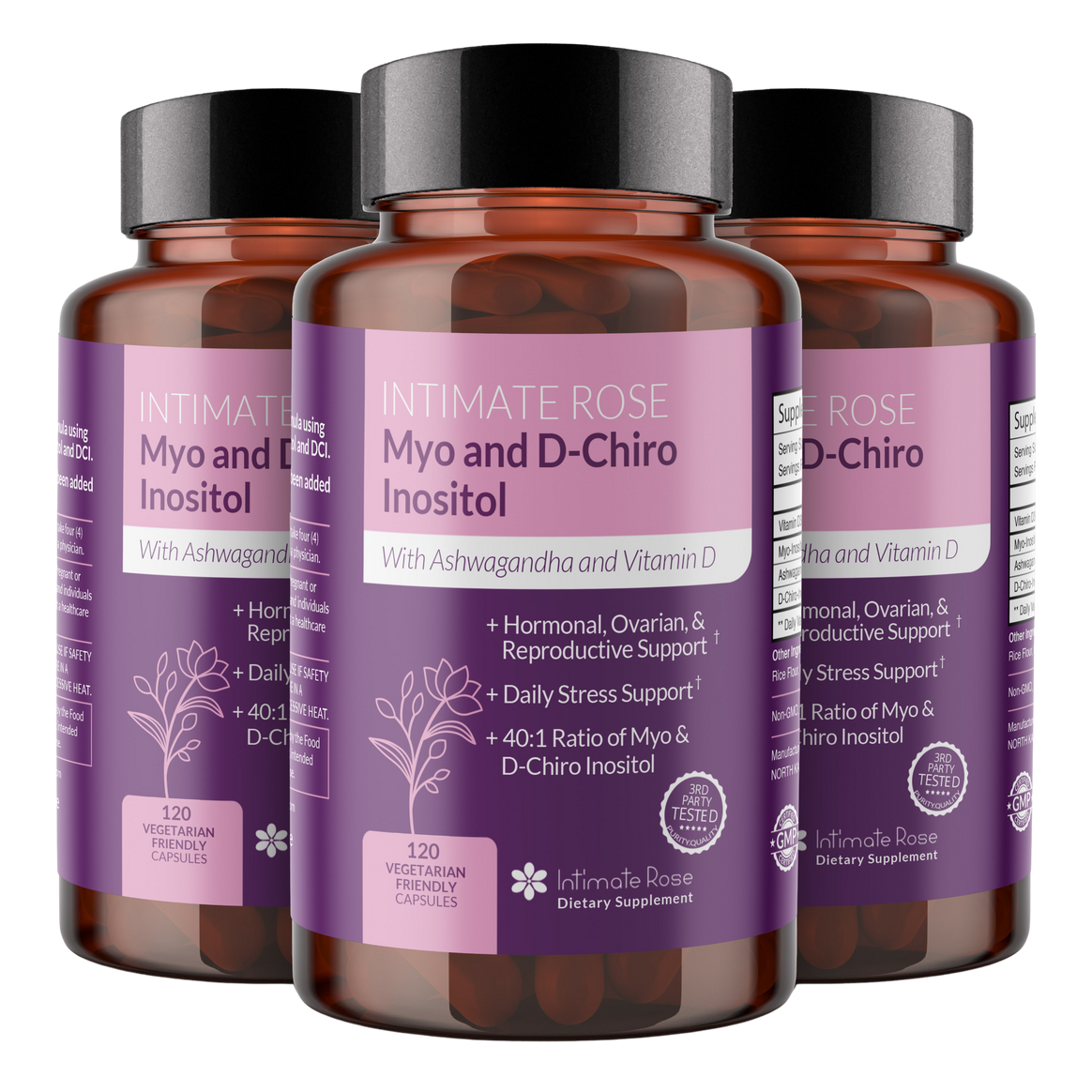
Why the 40:1 Inositol Ratio is Important
During a 2019 clinical trial, researchers tested various formulations and combinations of Myo-Inositol (MI) and D-Chiro Inositol (DCI) to assess the efficacy of different blends for treating PCOS symptoms.
With the primary outcome to restore ovulation and rebalance hormones, participants in the trial received two doses of inositol in varying blends twice a day for three months. At the end of the trial, researchers concluded that a 40:1 MI/DCI ratio is most effective in re-establishing ovulation and reducing additional PCOS symptoms.
What are the Longterm Risks of PCOS?
In addition to fertility issues, research has shown that women with PCOS are at greater risk of developing high blood pressure, heart problems, and type 2 diabetes. Although rare, women with PCOS are also at risk of endometrial cancer due to the ongoing imbalance of female hormones.
Conclusion
Unpredictable menstrual cycles associated with PCOS can be difficult to live with and frustrating when trying to conceive. Not to mention additional symptoms like facial hair, acne, bald patches, and diabetes.
Thankfully, research has concluded that when combined with a healthy diet, good sleep, and regular exercise, a specific combination of inositols in supplement form can accelerate weight loss, improve the use of insulin, successfully reduce PCOS symptoms and regulate menstruation.
If you are suffering from irregular periods or any other symptoms linked to PCOS, contact your doctor to check if Myo-Inositol and D-Chiro Inositol Supplements are right for you.
References
Johns Hopkins Medicine – PCOS - https://www.hopkinsmedicine.org/health/conditions-and-diseases/polycystic-ovary-syndrome-pcos
Very Well Health - 6 Things to Know About Taking Inositol for PCOS - https://www.verywellhealth.com/inositol-for-pcos-info-2616286
National Center for Biotechnology Information - Type 2 diabetes and the polycystic ovary syndrome - https://pubmed.ncbi.nlm.nih.gov/14973409/
European Review for Medical & Pharmacological Sciences - Effects of three treatment modalities (diet, myoinositol or myoinositol associated with D-chiro-inositol) on clinical and body composition outcomes in women with polycystic ovary syndrome - https://www.europeanreview.org/article/17278
European Review for Medical & Pharmacological Sciences - The 40:1 myo-inositol/D-chiro-inositol plasma ratio is able to restore ovulation in PCOS patients - https://www.europeanreview.org/article/18223

Things Off Down There?




